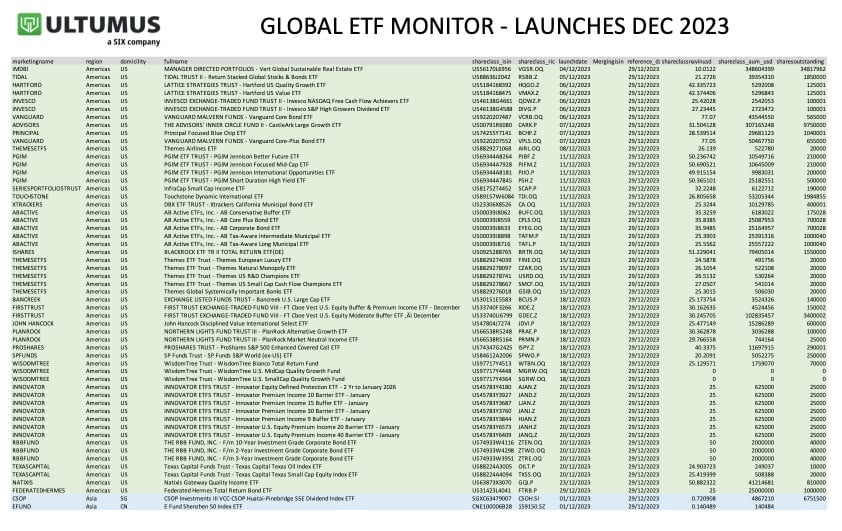iShares inflation hedged AGG and HYG
iShares has listed three new bond ETFs that provide inflation and interest rate hedged versions of HYG and AGG.
- iShares Interest Rate Hedged US Aggregate Bond ETF (AGRH)
- iShares Inflation Hedged US Aggregate Bond ETF (AGIH)
- iShares Inflation Hedged High Yield Bond ETF (HYGI)
ARGH and AGIH work in the same way. They both invest in iShares $80 billion mega-ETF, the iShares Core US Aggregate Bond ETF (AGG US), which is the largest bond ETF in the world. The two then use swaps to provide interest rate and inflation hedges. AGIH uses CPI swaps, targeting all the important points of the yield curve. While AGRH uses US Treasury and other futures and interest rate swaps to hedge against interest rate movements.
The two funds charge 0.13%.
HYGI does something similar but for junk bonds. It invests in HYG, which is iShares $13 billion junk bond ETF, and then uses CPI swaps to hedge inflation risk.
The fund charges 0.52%, in line with HYG.
Bernie’s commentary – limitations
These ETFs essentially repurpose existing ETFs for today’s market conditions. And if inflation is enduring, which it may well be, then this is a smart move. However, there’s still limitations to this approach. The few more obvious ones which I can see:
- The CPI swaps will protect the funds NAVs from inflation, but not the funds distributions;
- The value of CPI swaps are set more by inflation expectations than inflation itself;
- Interest rate and inflation swaps do not mitigate credit risk, which may have larger impacts on junk bond prices than interest rates;
- You’d expect these funds to underperform their non-hedged counterparts (AGG, HYG) over long periods if only because of the cost incurred by the higher portfolio turnover and less favourable tax treatment of derivatives;
- Tracking error for ETFs with heavy swap exposures is almost always higher than their vanilla counterparts.
Still, at the end of the day these are low-cost portfolio building blocks. And given the tanking prices of some of these bond ETFs, I’m sure there’s going to be demand for them.




